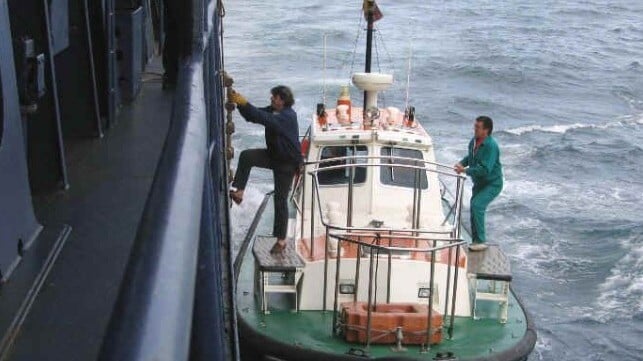Leadership in Pilotage: Strategic Command, Navigational Mastery

Among the few marine professions that purse a man's technical skills and value very high, maritime piloting perhaps is in a class of its own. In this career, the pilot is entrusted to maneuver vessels through some of the most challenging and congested waterways while ensuring seamless integration between shipboard operations and port infrastructure. While technical proficiency might stand tall, it is, in fact, leadership acumen that separates a good pilot from simply an above-average navigator.
Decision Making under Pressure and Strategic Decision-Making
Pilotage is a high-consequence activity in decision-making where inaccuracy or loss of confidence cannot be afforded. The pilot must form quick judgments and take confident decisions instantaneously, based on dynamic variables such as hydrodynamic forces, vessel displacement, meteorological conditions, and traffic density. A mistake may lead to serious financial loss, environmental disaster, or even the loss of human life. In this context, effective leadership involves not just experience but a strategic mindset that allows the pilot to anticipate, mitigate, and manage risks proactively. A proficient pilot relies not only on data and instruments but also on intuition developed through years of hands-on experience.
Advanced Situational Awareness and Adaptive Leadership
The competent maritime pilot practices an advanced state of situational awareness, being in a place where several parallel streams of real-time data are processed to manage operational efficiency and safety. Each port presents a different hydrographic and topographic challenge that demands deep local knowledge of conditions, regulations, and operating protocols. Unlike other maritime roles, the pilot does not have the time to make lengthy decisions-adjustments must be instant. Leadership in this area means adaptability; Pilots need to reset their strategy to match changing circumstances while maintaining smooth integration with masters, tugs, and longshoremen. It is the ability to stay calm under stress and change rapidly that often distinguishes the truly great pilot from the merely good.
Command-Level Communication and Team Synchronization
The pilot is the authoritative figure on the bridge when port handling is taking place, and command-level communication must be used. It is essential that the pilot be able to give clear, concise, and authoritative directions for the safe handling of the vessel. Strong leadership does call for a pilot to balance assertiveness with diplomacy, especially when working with international crews who have different communication styles and operational practices. Precision in verbal orders, clarity in situational briefings, and decisiveness in crisis management are also inclusive of the essential elements of leadership. The job of a maritime pilot is to handle and coordinate complicated operations effectively, working with cross-functional teams that demand both exceptional ship-handling skills and strong interpersonal and managerial expertise. The quality of cooperation and collaboration among masters, tug crews, and port control centers determines success or failure in this operation.
Operational Risk Management and Safety Leadership
By its very nature, piloting is an inherently risky trade where safety margins are usually minimum. An experienced pilot does not wait but proactively pursues risk management through an in-depth pre-arrival briefing, critical analysis of navigation charts, and predictive analytics to identify the hotspots of risk. The leadership here does not involve mere direct operations but embedding a sense of safety culture among the crew, ensuring complete adherence to international maritime regulations, and introducing comprehensive contingency plans to mitigate emergencies. Moreover, pilots must be ready at any moment for the unexpected failure of equipment, bad weather, or human error-factors that require a resilient and highly responsive leader.
Mentorship and Professional Development
Leadership within the pilotage does not end with the art of navigation; experienced pilots play an important role in molding the next generation of maritime professionals. Beyond execution of operations, this extends into mentorship, training, and knowledge transfer. Senior pilots, while being at the helm of various structured pilotage programs and direct guidance, leave the best patterns in junior partners, thus ensuring continuity to excellence and standards at their finest. The most defining trait amongst elite maritime pilots is the power to develop and inspire future leaders within the calling. Continuous professional training with updates in modern maritime technology, regulatory issues, and crisis management strategies further keeps the pilots at the forefront in their field.
Conclusion
A maritime pilot is much more than a technical specialist but a strategic leader in safeguarding the competitiveness of maritime commerce and the efficiency of its operations. It is the ability to make sane decisions under pressure, to work out life-and-death dilemmas in high-risk environments, and to coordinate a diverse team that cements the definition of maritime leadership. Being able to command respect, instill confidence, and create a harmonious atmosphere is what makes a pilot a vital partner. In a career where milliseconds and millimeters make all the difference between success and disaster, the pilot is the very epitome of professionalism, decisive action, and command authority.

that matters most
Get the latest maritime news delivered to your inbox daily.
For those who would become maritime pilots, there is no question about developing either strong leadership potential or technical proficiency. The coming generation of pilots will face ongoing challenges that include developments in automation and changing regulatory regimes. Through leading with confidence, effective communication, and adaptation under pressure, the next generation will continue to ensure the safety and efficiency of global maritime operations.
Abolfazl Farajnezam, MSc is a maritime leadership consultant and a former marine pilot.
The opinions expressed herein are the author's and not necessarily those of The Maritime Executive.
